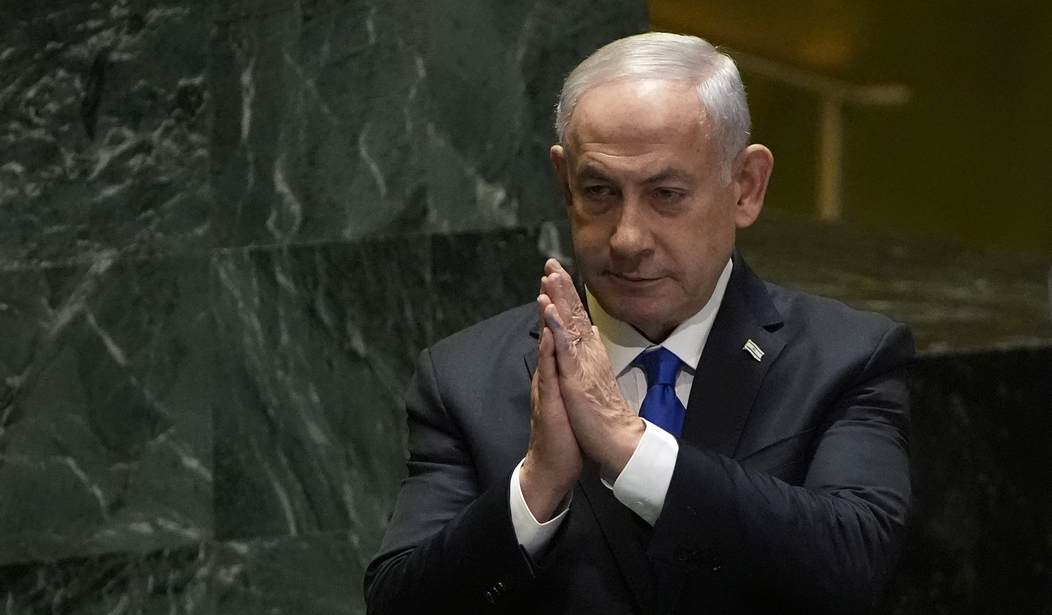Israeli Prime Minister Benjamin Netanyahu has made the deliberate decision to change the status quo in the Middle East and tilt the board in Israel's favor.
To do it, he has decided to risk a wider, more destructive war that could involve the United States and perhaps other non-Middle Eastern powers.
October 7 was the last straw. Basically, Netanyahu told the international community to go to hell. He and Israel would do whatever it takes to achieve what every other nation on planet Earth has an absolute right to: peace and security. If that means rousting Hamas and Hezbollah from their hiding places behind the skirts of women and the bodies of children, so be it. It's a tragedy that falls squarely on the heads of the terrorists.
It's an unprecedented policy to warn civilians (and the enemy) that they will be under attack by the IDF. Israel does it knowing that the terrorists try to prevent civilians from moving away from the battle zone in order to maximize civilian casualties.
What is Israel's endgame? When will Netanyahu end the war?
The prime minister's original war aims were to destroy Hamas and free the hostages. Since then, he has added the return of Israeli civilians to their homes in Northern Israel to the list of war goals.
Destroying the military and governing capabilities of Hamas may be within reach. The Israelis have beheaded Hamas leadership and disarmed them. Netanyahu knows that he can never really "destroy" Hamas, but a vastly weakened Hamas will prevent a repeat of October 7.
The civilians were forced to flee because of constant Hezbollah rocket attacks on their towns and villages. More than 80,000 Israelis have been displaced while Hezbollah violated UN Security Council resolutions that were supposed to move them much further from the Israeli border. Now Netanyahu wants to prevent the terrorists from regaining their position on the border and move them at least 18 miles further south, to the banks of the Litani River.
Israel’s military chief of staff, Herzi Halevi, said, “We continue to operate against the enemy and will not stop until we ensure that we can safely return the residents, not just now, but with a future outlook.”
That almost certainly points to some kind of buffer zone or Demilitarized Zone where neither the IDF nor Hezbollah can station troops.
“If anyone considers rebuilding these villages again, they will know that it’s not worth constructing terrorist infrastructure because the IDF will neutralize them again,” he added.
Meanwhile, the U.S. has stopped calling for a ceasefire and has decided to let the conflict play out.
Just two weeks ago, the United States and France were demanding an immediate 21-day ceasefire to ward off an Israeli invasion of Lebanon. That effort was derailed by Israel's assassination of Hezbollah leader Syed Hassan Nasrallah, the Oct. 1 launch of Israeli ground operations in southern Lebanon and Israeli airstrikes that have wiped out much of the group's leadership.
Now, U.S. officials have dropped their calls for a ceasefire, arguing that circumstances have changed.
"We do support Israel launching these incursions to degrade Hezbollah's infrastructure so ultimately we can get a diplomatic resolution," State Department spokesperson Matthew Miller told a press briefing earlier this week.
The course change reflects conflicting U.S. goals - containing the ever-growing Middle East conflict while also severely weakening Iran-backed Hezbollah.
The Biden administration may be looking to capitalize on Hezbollah's disorganization and weakness by urging some factions in Lebanon to rid the tiny country of Hezbollah's bullying once and for all.
Jon Alterman, a former State Department official, told Reuters that Washington's approach seems to be: "If you can't change the Israeli approach, you might as well try to channel it in a constructive way."
That may mean backing other factions like the Christian nationalists in the Lebanese Forces Party led by Samir Geagea or the Sunni faction. Gaegea leads the largest bloc in parliament and has no love for Hezbollah.
“No one has the right to control the fate of a country and people on its own,” Geagea said in his heavily guarded headquarters in the mountain village of Maarab. “Hezbollah is not the government in Lebanon. There is a government in Lebanon in which Hezbollah is represented.”
That hasn't stopped the terrorists from being a shadow government, using the threat of their armed militia to run Lebanon their own way.
Netanyahu is going for the gold by taking down Hamas, Hezbollah, and, by extension, Iran. Tehran's two most powerful and useful proxies in the Middle East are being shredded and Iran can't do a damn thing about it.
Netanyahu may be ensuring the security of his country for the next decade by fighting his most relentless foes and beating them. He has restored Israeli deterrence in the eyes of his nation and friend and foe alike in the rest of the world.
He hasn't made any friends. But that's not what he was trying to do.










